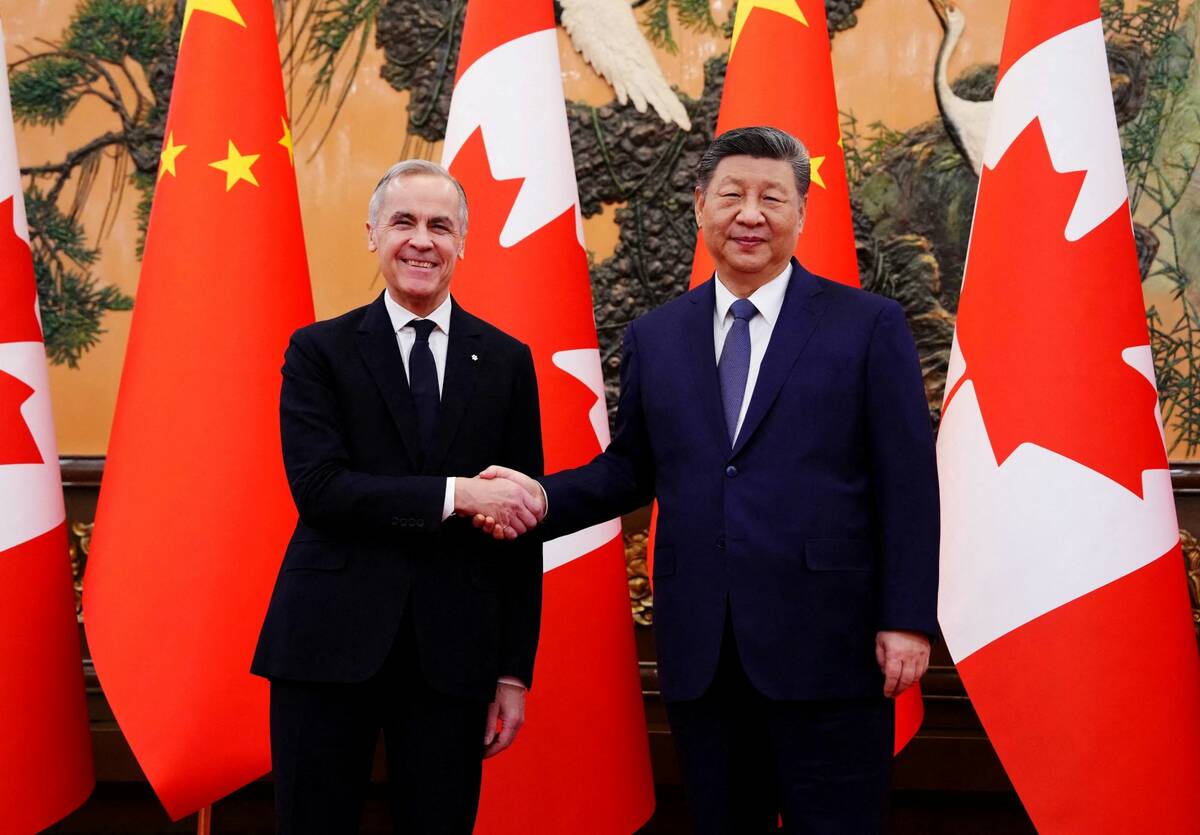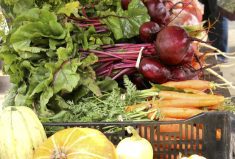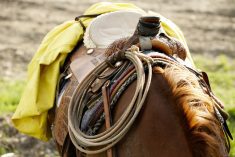I have found a cousin — or rather he found me.
Years ago, I had placed a little post on Facebook with a short message in which I said I was looking for information on my maternal grandmother. I knew her name and when she passed, but that was nearly all. And I wanted to find her family in Europe.
Five years later I received an email from a fellow claiming he was that missing link.
Since that time, we have spent many hours talking about family, global politics, economy and our values. An interesting chap — he is also exceedingly kind and an entrepreneur who believes in the equality of all persons.
Read Also

Pragmatism prevails for farmers in Canada-China trade talks
Canada’s trade concessions from China a good news story for Canadian farmers, even if the U.S. Trump administration may not like it.
During one of our conversations, he revealed he was a chess master and proudly proclaimed that he currently held the 11,000th place in the world. I had to think about that.
‘How many chess masters are there?’ I asked.
The answer was, ‘just over a million.’ That reply put into perspective his actual position in the game — for he was in the top one per cent!
How tragic it would have been to pass judgment on that position without asking for further clarification. And yet, what did you think when you first heard the placing of 11,000th?
So often we are busy measuring ourselves and others by performance and output, maybe even by recognition. The rush to place first and the unintended consequences are pretty well documented.
Unless it’s your own gig, someone else is building wealth on your efforts. And if it is your own business then your definition of success could be quite different than the person next to you.
In the world of agriculture, being in 11,000th place would be met with some pretty negative responses but it’s not the placing — it is the game that counts.
Why does my cousin play chess, write books on mastering the game and teach it to children everywhere? Because, in his words, he believes that through children and the game of chess, people who know each other personally would not go to war with each other later.
He has a full appreciation of this as he lives in an area of the world that has repeatedly known conflict. The current war grieves him deeply. His definition of success was lasting peace mastered through a game that shifted cultural expectations and norms. There is hardly a dollar sign large enough to reflect that value.
In this little story of a man, a game and a mission, I see parallels to the world of food production.
How often has an industry majority ridiculed those within it when they were in last place and stretching themselves toward a value-driven goal?
Grass-fed beef was once rebuffed and is now a norm. Cage-free chickens were a production joke and now enriched cages are part of the welfare code. Organic foods were dismissed as hippie fodder and now are a US$120-billion industry with production covering just over 75 million hectares of land.
The idea of slicing beef differently from a traditional roast or steak has resulted in Korean ribs being one of Canada’s bestsellers. The young western entrepreneur who uses biodegradable packaging for his cookies is selling out, and the eastern food processor who pressed flavours into crayons dazzled foodies. Meanwhile, those without borders to their minds are producing natural fertilizers with everything from hulls to human waste.
In the past, farmers themselves were thought of as ‘just farmers’ or the bottom of the barrel in terms of education and literacy. They now write the script on one of the most technologically advanced industries in the world. And, consumers ‘want’ to know their farmer and where their food comes from. They have chosen to be in the game.
None of these achievements come with a first-place medal or instant recognition.
They are products driven from a place of core values: to treat food animals better, to eat better, to use less, to meet consumer and cultural demands, to save the soil, to reduce waste, to live longer, to make life easier and to feed the world.
As one of my close friends says, “The pennies follow the passion.”
Those who dare to be different often reap exceptional rewards. I have often found the quiet person in the room with a few acres is leading a less stressful and more fulfilling life, and netting more than the highly recognized big guns. Success is a value equation.
Certainly, the reason we play chess is to win and the reason we farm is for prosperity.
But our purpose and our calling are much higher. Just as my cousin employed chess to bring children of opposing political countries together and encouraged strong relationships, so too must we use the production of food to unite the world. But first we must unite within our own agricultural sectors.
Only then can we employ food as an instrument of peace, human rights, prosperity and stability. All the players must come to the table with a common vision to put the human, animal and environmental ecology into play.
















